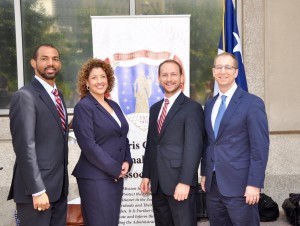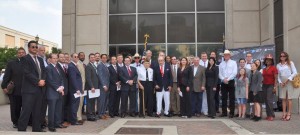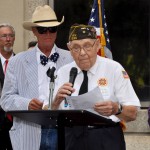Kent Schaffer was a drama college major at the University of Texas when he saw Richard “Racehorse” Haynes cross-examine a Texas Ranger. For the next four days, Schaffer would skip his classes to attend the trial. At the end of the trial, Haynes offered Schaffer a job. Schaffer showed up at the job the day after classes ended and for the next three summers he would continue working as an investigator for Haynes until he decided to be a lawyer. He graduated from the University of Houston Law School in 1981.
 Schaffer has represented high profile clients such as Farrah Fawcett, Congressman Craig Washington, and R. Allen Stanford. He’s most recently been in the Tom Sizemore short film “Pieces” and was one of the producers of An Unreal Dream: The Michael Morton Story.
Schaffer has represented high profile clients such as Farrah Fawcett, Congressman Craig Washington, and R. Allen Stanford. He’s most recently been in the Tom Sizemore short film “Pieces” and was one of the producers of An Unreal Dream: The Michael Morton Story.
Q: It seemed like you enjoyed being an investigator for Haynes. Why law school?
A: I was always in and out of trouble as kid. I’d often get in trouble for saying things that were on my mind. So it was always one of those ‘it takes one to know one…’ I always enjoyed trying to find out something about someone that they didn’t want me to find out.
Q: Did being a drama major in school help you with being a lawyer?
A: Being in trial is similar to a dramatic production. You have to get their attention and interest and you have to learn to make things interesting to someone. In drama you learn the tools to make people want to listen and pay attention. I don’t get stage fright. I enjoy the performance.
Q: How has going to trial changed from when you were first practicing?
A: Now, it’s a lot harder to take cases to trial. There’s not than many cases that get to trial. The federal sentencing guidelines are insanely high. When I first practiced, there was no talking to the police. Now a lot of people are snitches. A lot of people want to cooperate to get that probation or year instead of going to trial. The [State] threatens to hammer you if you go to trial so there aren’t a lot of lawyers willing to go to trial.
Q: How have you seen the jury system change over the years?
A: Now it’s an ADD generation. You can’t be too emotional and jurors have more mistrust of the lawyers. Jurors are more skeptical and conservative. They know the police lie, they know there’s an inherent racism in the system. They’ve seen CSI and in a case where there’s an absence of forensics, it can seem as though there’s no evidence. Lawyers need to be cognizant of their audience and pick members [of the jury] that are closer to the defendant. You have to adapt to a jury and I have to frame a case to that audience.
Q: How are judges different now than when you first started?
A: It seems a lot of people are in a hurry. You have to take the time to get your story out there; you can’t speed up the trial for the sake of brevity. Now we’re being told you have to speed things along. Judges compare the size of their docket as though that matters. Why does that make a quality judge? The quality of a judge is where justice is meted out and not how quickly they proceed through a case. Federal judges are different.
Q: What about the system itself. How has that changed?
A: There’s a lot of people who are in the criminal justice system who should not be there. We criminalize things we should not. When I went to St. John’s, I would get five pops for talking in class. Then when I got home, my parents would spank me for getting in trouble in school. I got spanked so much that I thought it was an S&M movie. We need more accountability from the family. In Aspen, the Sheriff recommends milder forms of marijuana. The deputies will protect the marijuana growers. The police there protect people unlike here where they’re kicking in the door to get a bag of weed. We will be the one of the last states to legalize marijuana. The electorate is not an intelligent group because we have a lot of people from West and East Texas.
Q: Is there a lawyer who you admire?
A: Gerry Goldstein. He enjoys life everyday. A lot of lawyers’ lives revolve around work. I don’t have a lot of passions but I enjoy photography, art, film, travel, and people. I’m not a good loner. Being a good lawyer is knowing people. You need a real appreciation for people.
Q: What advice do you have for the younger lawyers out there?
A: Always keep your word even though you don’t want to. People come to you and trust you. You made them that promise that you will give them a hundred percent of your time and talent. We’re like surgeons. People are on the table. You take the shortcut: that’s inexcusable because you want to go play golf. You can’t have it all. It’s hard to be all things to all people. When you have a profession instead of a job, you have to put in the time and keep your word. No shortcuts.
Q: You’ll be 60 years old on August 22. What would you be doing if you weren’t a lawyer?
A: I’m a Jew; we’ve always wandered the desert. If I’m not practicing law, I’d want to own the Bellagio.
interview by Thuy Le





 On July 2, 2015 members of the Harris County Criminal Lawyers Association again assembled on the courthouse steps for our annual reading of the Declaration of Independence. Began in 2010 by Robert Fickman, this was our 6th Annual Reading.
On July 2, 2015 members of the Harris County Criminal Lawyers Association again assembled on the courthouse steps for our annual reading of the Declaration of Independence. Began in 2010 by Robert Fickman, this was our 6th Annual Reading.
